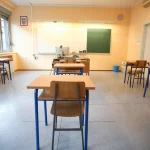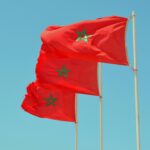As expected, the Declaration has provoked a controversy.
Prime Minister Andrej Plenković reacted on Wednesday to the Declaration on Common Language, which has been drafted by a group on linguists and writers claiming that Croatian, Serbian, Bosniak and Montenegrin are variants of the same language, reports Večernji List on March 29, 2017.
He said that there was no need to discuss it in a serious way, pointing out that Croatian language has been defined by the Constitution and is one of the official languages of the European Union. “How could I support it? Who can support that in Croatia?” said the Prime Minister asked whether he supported the Declaration. “The Croatian language is the language of Croatia as defined by our Constitution. Croatian language is one of the official languages of the EU. For me, that is all that matters. I do not think we should waste any words in any serious manner on some informal initiatives”, said Plenković.
The declaration was drafted by 30 experts from different fields during the recent series of conferences which took place in Podgorica, Split, Belgrade and Sarajevo. The declaration will be officially presented on 1 April.
Culture Minister Nina Obuljen Koržinek also commented on the issue. “I suppose it is a political initiative which is probably connected with the fact that we are celebrating 50 years since the signing of the Declaration of Name and Status of Croatian Language. Serbo-Croatian or Croatian-Serbian language is actually a political construct, the result of a particular ideology and state policies which was never realized in practice. In all four countries where the name Serbo-Croatian or Croat-Serbian language was politically imposed, speakers spoke Croatian, Serbian or a third language, and they called their languages Croatian, Serbian or somehow else. Among these languages there are great similarities (as well as structural and lexical differences which have increasingly diverged in the last 25 years), and speakers to a very large extent understand each other and can more or less freely communicate. That is an added value enjoyed by the neighbouring countries, which enables us to read literature in the original language of writers, communicate and develop good neighbourly relations”, said Culture Minister Nina Obuljen Koržinek.
Bojan Glavašević, SDP’s MP and a linguist, attended the conference in Podgorica but did not sign the Declaration. “I have not signed it since I am a member of Parliament. I attended the conference as a scientist. Both the conference and the Declaration are primarily a call for the separation of nationalism and politics from sciences. I think that the uniqueness of the Croatian language is unquestionable and that it cannot be compromised in any way, including with this Declaration. Croatian is the official language of the Republic of Croatia and is one of the official languages of the EU, has its own grammar, spelling and vocabulary, and thus its status is secured now and for the future”, said Glavašević.










